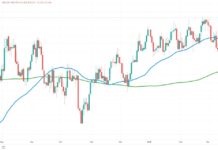 The goal of many sustainable investors is to align their investment decisions with their ideals on issues ranging from natural resource stewardship to corporate governance and community interaction. Similar to philanthropy, the objective of many sustainable investors is to improve the world in some way while advancing personal investment goals at the same time. Today I wanted to share one investment idea that may not jump out as a sustainable option at first glance. This is the large agricultural, bio technology and equipment companies such as Monsanto (MON), John Deere –Deere & Company – (DE) and Potash (POT) among others.
The goal of many sustainable investors is to align their investment decisions with their ideals on issues ranging from natural resource stewardship to corporate governance and community interaction. Similar to philanthropy, the objective of many sustainable investors is to improve the world in some way while advancing personal investment goals at the same time. Today I wanted to share one investment idea that may not jump out as a sustainable option at first glance. This is the large agricultural, bio technology and equipment companies such as Monsanto (MON), John Deere –Deere & Company – (DE) and Potash (POT) among others.
Most investors agree that, from a long-term investment thesis perspective, these companies are well positioned to capitalize on the world’s increasing demand for food from a shrinking base of arable land. But how do these companies represent a sustainable investment?
In the case of Monsanto many of their GMO seeds are developed with “the purpose of using less area, less energy, less pesticide, and less maintenance than conventional crops. They also mean we can grow food in new areas around the globe. With the tools to feed the world with viable crops closer to the poles, we can preserve the more bio diverse regions close to the equatorial zones.” 1
Furthermore, farm equipment makers such as John Deere now incorporate advanced GPS technology that increases efficiency in everything from planting and harvesting to the application of fertilizer and pesticides. For example, new “smart booms” allow farmers to map a field and apply fertilizer using variable application rates. So if an area needs less or no fertilizer at all the boom, using GPS technology, recognizes where it is on the field and automatically modifies the application rate as needed, significantly reducing the risks posed by fertilization.
Additionally, new tractors have computers that monitor ground speed and seed loss while using air drills that can precisely place a seed, so if you want one seed an inch, that is what you get. This a far cry from the old much less precise gravity drills. Lastly, conventional wisdom dictates that size and sustainability are mutually exclusive. However, new bigger farm machines mean that farmers can harvest up to 300 acres a day of wheat with one machine while only a few years ago it would have taken three; meaning less gas, fewer emissions and not only a larger but a more sustainable harvest.
Conventional wisdom says that small scale agriculture, like the local organic farm, is the sustainable option and writes off larger corporate agriculture companies as planet destroyers. The reality is that many of these large agriculture companies are developing technology and new products that will allow us to feed more people, on less land, using fewer resources making them a potentially attractive option for sustainable investors. Thanks for reading.
Source: Mischa Fischer, November 11th, 2013 “The Republican Party Isn’t Really the Anti-Science Party”, The Atlantic.
Twitter: @JoshuaSchroede2
Any opinions expressed herein are solely those of the author, and do not in any way represent the views or opinions of his employer or any other person or entity.








